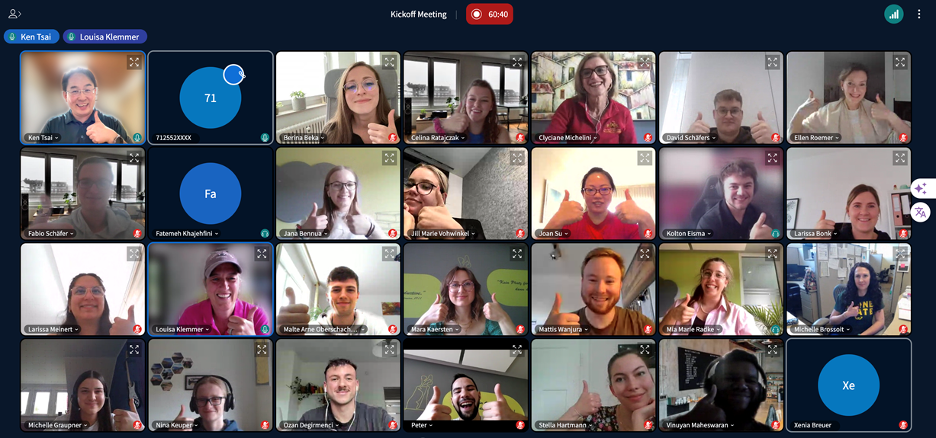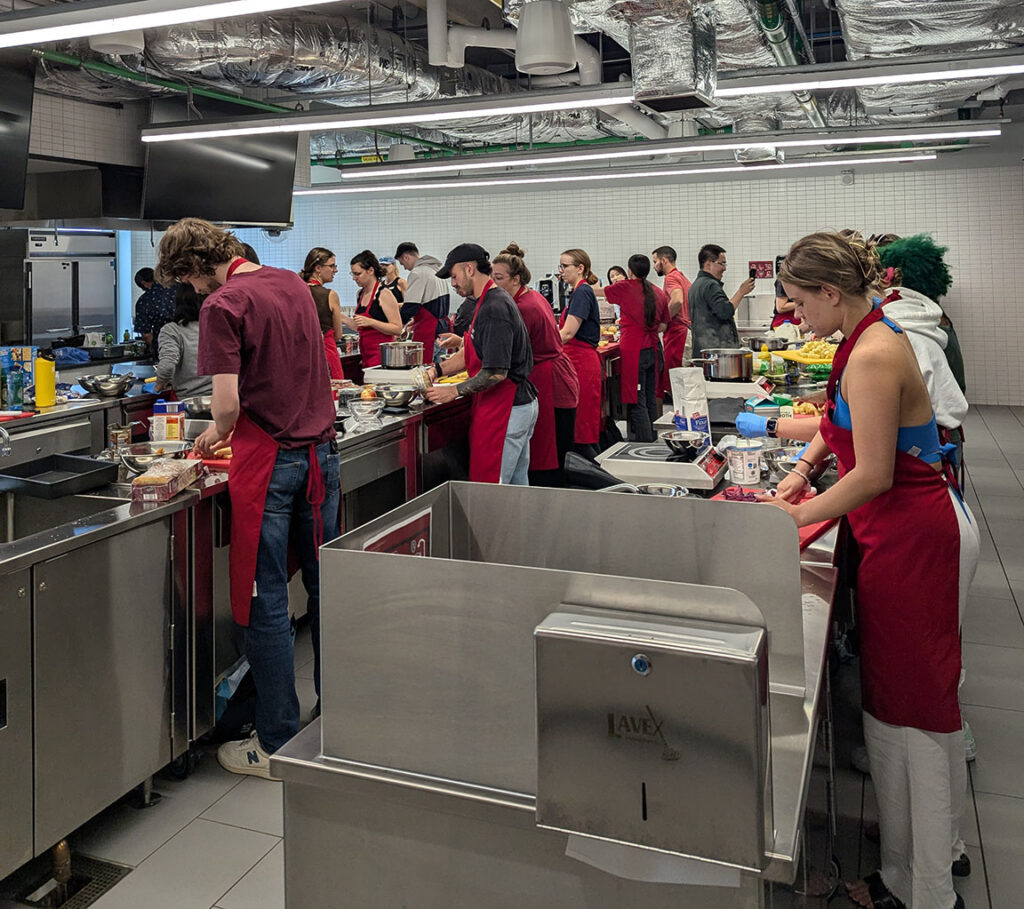You never know what might come from a conversation with like-minded colleagues at a pub in Berlin…
IIE congratulates Iowa State University on receipt of the 2024 Andrew Heiskell Award for Innovation in International Education. Designed to remove barriers to international educational exchange, the University’s Virtual Exchange+ Transatlantic Summer School empowers U.S. and German students to work collaboratively over a semester or project-based learning experience. As a benefit of receiving the Heiskell Awards, IIE is publishing guest entries from each recipient institutions.
How did you come up with the program concept?
In 2019, faculty leaders from Iowa State University, Wayne State University, Ruhr West University of Applied Studies (Ruhr West UAS), and Harz University of Applied Studies (Harz UAS) had an idea to create a virtual learning exchange program to further internationalize their respective institutions. They had a common interest in using digital learning technologies and there were many similarities among their students.
Energized by the concept, several faculty members volunteered to participate in a course-based project with a colleague from another institution, forming a community of practice via multiple online webinars at the height of the COVID-19 pandemic and eventually convening in-person workshops in the U.S. and in Germany to deepen faculty connections. By 2021, the program was up and running!
This passionate faculty cohort has since expanded the initial program to include a two-phase summer school program, which was offered in 2023 and 2024. The summer school includes a four-week online phase in early summer and a two-week in-person phase in late summer.
Tell us more about the program design. How did you ensure it was of mutual benefit?
Objectives created by the team helped shape decision making across institutions and resulted in a shared vision for the program. We focused on defining student objectives, which include:
- provide an opportunity for students to work on cross-disciplinary teams similar to what they will experience in their career;
- build student’s cultural competencies, which in turn enhances their marketability to future employers, and;
- create an immersive, high-impact, project-based learning experience for students that is integrated into their regular curriculum.
Recognizing the breadth of student and faculty interests, availability, and personalities, we designed this program to provide them with a variety of ways to participate (i.e. semester or summer session). As of June 2024, 446 students and 70 faculty have participated in the program. Evaluations completed by students and faculty show the objectives are being accomplished. As an example, a student noted on their evaluation “ It is so important to get outside of your comfort zone and learn about diverse perspectives. Your way is not always the only best way.”
How do you measure success?
Throughout the process of creating and implementing the Virtual Exchange and Transatlantic Summer School, we identified three areas that we believe are central to the success of our program to date. We recommend institutions consider these areas to create similar programs.
1) Building Faculty Capacity
An engaged and innovative faculty supported through tailored professional development is essential to the success of this type of program. Additionally, access to digital technologies, and pedagogical and technical support, are critical to building faculty capacity.
2) Establishing a Faculty Community of Practice to Ensure Continuation
Sustained faculty interest and contributions are necessary for this program. Peer-to-peer support with continued training and venues for sharing best practices provide new insights and energy.
3) Engaging Pedagogical Practice
The virtual exchange and summer school programs are grounded in project-based learning pedagogy. The high-impact educational practices cultivate a range of skills, stimulate innovative activities, and forge meaningful collaborations across content areas.
4) Administrative Support
The four faculty leaders who initiated this project in 2019 have continued their involvement by working at an institutional level to reduce barriers to participation. They increase program visibility, provide financial resources to defray faculty and student travel expenses, and motivate participation in the program.

The Heiskell Award was created in 2001 to promote and honor outstanding international higher education initiatives conducted by IIENetwork members. By recognizing excellence and innovation, IIE supports IIENetwork members in their endeavors, encourages the expansion and creation of initiatives based on these successful models, and amplifies the important role of international higher education on campuses and communities. Each winning initiative receives $1,000 to contribute to their ongoing success. Learn more about the awards and honorees at iie.org/HeiskellAwards.
